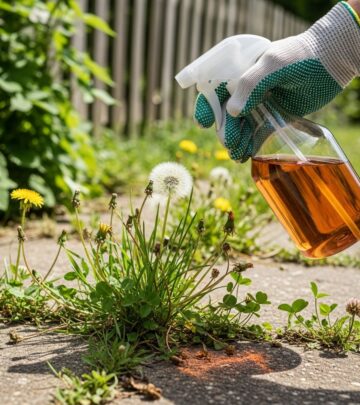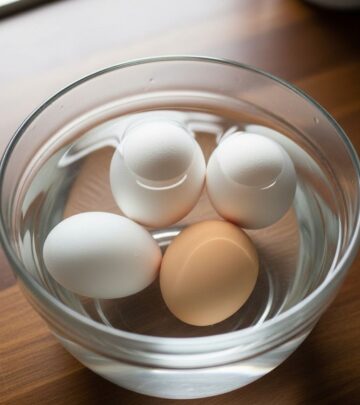How Often Should You Change Your Bed Sheets? Expert Advice for a Healthier Sleep
Effortlessly refresh bedding for a cleaner sleep space and support healthier rest.

There’s little quite like sliding into a bed dressed in fresh sheets. But how often should you really be swapping out your bedding for optimal health and comfort? Despite expert guidance, most households don’t stick to best practices, and the impacts of that habit can range from unpleasant odors to increased allergy and skin issues. In this guide, we’ll break down expert opinion, scientific reasoning, what really happens if you delay the laundry, and practical advice for easy, stress-free sheet care.
How Often Should You Change Your Bed Sheets?
Top sleep experts and cleaning professionals overwhelmingly recommend changing and washing your bed sheets every week to maintain hygiene and comfort. If you share your bed with a partner, children, or pets—or if anyone in your household has allergies, asthma, or sensitive skin—you may need to wash them even more frequently, such as every three to four days.
- Once a week: The gold standard for most people, especially if you sleep in bed nightly, share your bed, or sweat during sleep.
- Every 3–4 days: Suggested for pet owners, people with allergies or skin conditions, or during hot weather.
- At least every two weeks: Acceptable for solo sleepers who don’t sweat excessively and shower before bed, but not ideal according to experts.
Tip: Having at least one or two spare sheet sets makes the laundry swap far easier and minimizes the temptation to leave dirty sheets on the bed.
Expert Opinions Summarized
| Expert/Source | Recommended Frequency | Special Notes |
|---|---|---|
| Tobin James (TEMPUR) | Every week | Every 3–4 days with pets on bed |
| Jonathan Warren (Time4Sleep) | Once per week | Especially important if more than one person sleeps in the bed |
| Scooms (Luxury Bedding Co-Founder) | Every 7–10 days | Monthly washing is not ideal |
| Medical Experts (General) | Once a week | More frequently for those with allergies |
How Often Does the Average Person Change Their Sheets?
Despite health guidelines, the average person changes their sheets every 2–3 weeks—or about every 24 days, based on a Mattress Advisor survey. Various factors like lack of time, forgetfulness, and underestimating cleanliness concerns contribute to this gap.
- Men versus women: Surveys show men tend to wait longer than women to change their sheets (average of 29.6 days for men).
- Single vs. partnered sleepers: Single people may go over a month between washes, while co-sleepers are slightly more diligent.
- Personal routines: Habits are shaped by a combination of personal preferences, cultural norms, climate, and sleep behaviors.
While these patterns are common, they fall short of what’s recommended for best health outcomes. Establishing a weekly routine for changing your bedding supports better sleep hygiene and may enhance both your rest and skin health.
What Really Happens If You Don’t Wash Sheets Often Enough?
It’s easy to overlook what happens while we sleep, but the accumulation can be surprising—and unsavory. Each night, our bodies shed skin cells, hair, bodily fluids, and even trace fecal matter onto sheets. This build-up provides a buffet for dust mites and creates the perfect environment for bacteria and fungi.
- Dust and dust mites: Sheets collect dust which harbors dust mites, a common trigger for allergies and respiratory issues. While dust mites themselves are harmless, their waste is a potent allergen.
- Skin problems: Dirty sheets can contribute to acne, rashes, itchy skin, and aggravate conditions like eczema, psoriasis, and dermatitis. Oily skin especially interacts poorly with unwashed bedding.
- Respiratory discomfort: Bacteria and allergens in sheets may exacerbate asthma and other breathing problems, interrupting sleep.
- Scalp and hair issues: Grime on pillowcases can affect a sensitive scalp, potentially increasing dandruff and even contributing to hair thinning.
- Odor and general discomfort: Accumulating sweat, oils, and saliva can lead to musty, sour-smelling sheets and an overall discomfort that directly affects your quality of sleep.
Health and Mental Wellness
The benefits of fresh sheets are not just skin deep! Studies reveal people sleep better, longer, and wake up more refreshed when bedding smells and feels clean. This isn’t merely comfort—it’s improved psychological relaxation and a boost to physical well-being.
The Science: Why Weekly Sheet Changes Matter
Each week, a surprising mix of debris and microbes can accumulate in bedding. Here’s what’s hiding in your sheets:
- Dead skin cells: The average person sheds millions nightly, providing food for microbes.
- Body oils and sweat: These build up faster during warm weather and for anyone who sweats in their sleep.
- Saliva and bodily fluids: All contribute to a bedding environment ripe for bacteria and odor.
- Dust, pollen, and pet dander: Especially problematic for allergy sufferers and those who sleep with pets.
According to microbiologists, not washing sheets regularly results in a sharp spike of bacteria after about 14 days, which is when many of the negative symptoms begin to accumulate.
How to Wash Your Bed Sheets: Temperature, Cycle, and Best Practices
Now that we know how often to wash, the next question is “how?” Getting your sheets truly clean while protecting the integrity of the fabric requires the right method.
Follow the Care Label
Always read the care label on your sheets before washing. Some materials (like linen or silk) require gentler cycles and lower heat, while others (like cotton) can tolerate more intensity.
Water Temperature
- Hot water (130–140°F or 54–60°C): Best for white cotton sheets and killing bacteria and allergens. Ideal for allergy sufferers and illness recovery.
- Warm water: Suitable for most sheets; effectively cleans while being gentler on fabric.
- Cold water: Good for delicate fabrics or to preserve color, but must tumble dry thoroughly at high heat to kill lingering microbes.
Recommended Steps for Washing Sheets
- Check the care label for temperature and cycle recommendations.
- Use a gentle detergent. Choose one that’s free from harsh chemicals or optical brighteners, especially for sensitive skin.
- Launder sheets separately or with similar lightweight fabrics to prevent tangling and ensure thorough washing.
- Avoid bleach unless necessary for whites, as it degrades fabric fiber over time.
- Wash your hands before handling clean sheets to prevent recontamination.
- Dry thoroughly. Tumble dry on low heat or line dry. Sheets should be completely dry before storage to prevent mold or mildew.
Laundry Routine Hacks
- Keep at least two spare sheet sets per bed. Swap immediately with a clean set and launder the dirty one later.
- Laundry day reminders on your phone or calendar help establish a habit, especially for busy households.
- Invest in allergen-reducing pillow and mattress protectors for easier sheet maintenance and extra peace of mind.
Special Circumstances: When To Wash More Frequently
Some lifestyle and health factors call for more frequent sheet changes. You should consider washing sheets every 3–4 days or even daily if the following applies:
- You sleep with pets who shed fur or track in dirt.
- You suffer from allergies, asthma, or skin sensitivities that are easily aggravated by dust and oils.
- It’s hot and humid, or you sweat significantly at night.
- You or your partner are sick, to prevent the spread of bacteria and viruses.
- You often go to bed without showering, or eat/snack in bed.
Signs It’s Time to Change Your Sheets
- Odors or musty smells linger after making the bed.
- Visible dirt, stains, or sweat marks appear.
- Your allergies, congestion, or skin irritations worsen after waking up.
- The fabric feels stiff, sticky, or less comfortable than usual.
Frequently Asked Questions (FAQs)
How often should I change my pillowcases?
Pillowcases should be changed at least once a week, but more frequently (every 3 to 4 days) is ideal for people with acne-prone skin, allergies, or who sweat heavily at night.
Is it okay to share sheets with pets?
It’s only safe if you wash sheets much more frequently—at least every three to four days. Pet fur, dander, and dirt can rapidly degrade bed hygiene and contribute to allergic reactions or skin irritation.
What temperature is best for washing sheets?
Hot water (over 130°F/54°C) is most effective for sanitizing, but always check your sheet’s care label first. For colorful or delicate fabrics, use cold or warm water but ensure sheets are thoroughly tumble dried to kill lingering bacteria.
Can not washing sheets really affect my sleep?
Yes, several studies show that clean sheets can lead to better, deeper, and longer sleep. Dirty sheets may cause irritation, allergies, or simple psychological discomfort that interrupts rest.
Do different fabrics need different care?
Yes. Cotton sheets are usually durable and can handle hot water, while linen and silk require cooler temperatures and gentle cycles. Always follow the care label instructions to avoid damage.
Quick Reference Table: Sheet Changing Recommendations
| Situation | Recommended Frequency |
|---|---|
| Standard solo sleeper, no pets | Every 7–10 days |
| Couples or frequent bed sharing | Once a week |
| Pets in bed or significant sweating | Every 3–4 days |
| Allergies, asthma, or sensitive skin | Every 3–4 days |
| Illness in the home | Daily, until recovered |
Conclusion: The Case for Weekly Sheet Changes
Clean sheets are more than just a luxury—they’re essential for ensuring your sleep environment supports rather than undermines your health. While life is busy and laundry is rarely a favorite chore, establishing a routine of weekly sheet changes (or more often, if needed) yields noticeable benefits for skin, breathing, sleep quality, and overall wellness. Invest in a few extra sets of sheets, set calendar reminders, and enjoy the comfort—your body, mind, and mood will thank you.
References
- https://www.countryliving.com/home-maintenance/cleaning/a63084379/how-often-change-bed-sheets/
- https://www.thisoldhouse.com/bedrooms/21015713/how-often-do-you-really-need-to-change-your-sheets
- https://www.naturepedic.com/blog/when-should-i-clean-my-sheets
- https://barehome.com/blogs/main/the-ultimate-guide-how-often-should-you-wash-bed-sheets
- https://www.healthline.com/health/how-often-should-you-change-your-sheets
- https://health.clevelandclinic.org/how-often-should-you-wash-your-bed-sheets
Read full bio of medha deb










